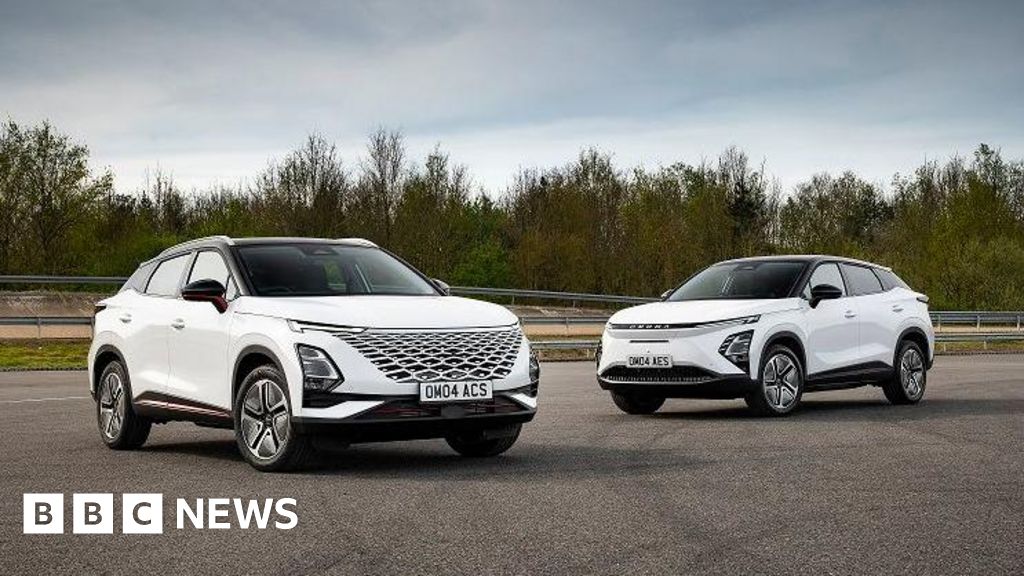 Chery
CheryChinese car giant Chery is weighing the possibility of producing cars in the UK, a senior executive has said.
Its UK head Victor Chang told the BBC it was only “a matter of time” before the company made a final decision.
He said that Chery is already preparing to produce cars in Spain and is determined to enter the European market through “localization”.
Mr Zhang denied that the company’s exports benefited from unfair subsidies.
Founded in 1997, Chery is one of China’s largest automobile companies. It is already the country’s largest car exporter and has ambitious plans for further expansion.
To help advance this plan, it has established two new brands focused entirely on international markets: Omoda and Jaecoo.
Omoda officially launched in the UK last month. The company has started selling its mainstream SUV Omoda 5, which is available in electric and gasoline-powered versions.
The company has established a network of 60 dealers and hopes to have more than 100 dealers by the end of this year.
But it is not the only Chinese manufacturer to see the UK market as potentially lucrative.
BYD, which has been competing with Tesla for the title of the world’s largest electric car maker, has also opened dozens of dealerships here.
SAIC is already quite large in the UK, selling cars under the classic British MG brand.
“It’s just a matter of time”
Cars currently sold in Europe are produced at Chery’s manufacturing headquarters in Wuhu, eastern China. But that is expected to change.
The company has reached an agreement with Spanish company EV Motors to allow production of Omoda and Jaecoo models at the former Nissan plant in Barcelona. But it also wants to build other bases.
Earlier this year, the company said the UK could also be a candidate for an assembly plant. This option remains on the table.
“Barcelona, this is something we have committed to”, explained Mr Zhang
“For the UK, we are also evaluating. To be honest, we are open to all options and opportunities.
“So I think it’s just a matter of time. If everything is ready, we will do it.”
A spokesman for the UK Business Department said the UK car industry was “thriving”.
They said: “While we cannot speculate on commercial investment decisions, we welcome the launch of Omoda by Chery International in the UK and will view any new investment in the UK positively.”
But the UK isn’t the only country on Chery’s list. For example, the company has also been in discussions with the Italian government about setting up production in Italy.
Mr Zhang denied the decision would hinge on which country offers the best incentives.
“For such a large investment project, it’s a combination of factors,” he said.
“It’s not just government policy or incentives. You also need to look at the market itself; education, because you need good talent, like engineers and factory workers; and supply chain, logistics.
“So there are many factors involved in our final decision.”
Pressure to establish manufacturing bases in Europe has increased since the European Union imposed steep tariffs on electric vehicle imports from China in July.
Brussels said this was done because Chinese carmakers benefited from “unfair subsidies” that allowed their cars to be sold abroad very cheaply, to the detriment of local manufacturers. China accuses the EU of protectionism.
By manufacturing its products in Europe, Chery will avoid paying these tariffs. But Mr Zhang insists his company remains committed to local production.
“We don’t want to use any unfair methods,” he insisted.
“We want to adapt to the local market and use the best dealers to provide the best products. Localization is the only long-term strategy.
Britain has not yet said whether it will take a similar approach with its own tariffs.
China’s domestic automobile market is vast, with more than 30 million vehicles sold annually.
It also already has a large share of the global market, exporting about 5 million vehicles last year. This was a 64% increase from the previous year.
In the UK, Chinese brands still account for a smaller share of car sales, at around 5%.
But established carmakers are concerned that the number could grow quickly, with prices offered by Chinese brands expected to play a key role.


